Vietnam has quickly joined the race to produce veterinary vaccines, including a vaccine against African swine fever.
The information was given at the Forum "Application of new advances in the field of veterinary vaccines in Vietnam" organized by the Department of Animal Health, the Department of Science, Technology and Environment, and relevant units under the Ministry of Agriculture and Rural Development in coordination with the Vietnam Agriculture Newspaper on the morning of December 28.
The Forum was attended by functional units of the Ministry of Agriculture and Rural Development, the Vaccine Research Center and enterprises producing, trading and exporting veterinary vaccines.
5.9 million doses of African swine fever vaccine have been supplied to the market.
Sharing at the Forum, Mr. Le Toan Thang - Head of Veterinary Drug Management Department (Department of Animal Health) - informed that currently, Vietnam has 92 veterinary drug production facilities meeting GMP-WHO, of which 12 facilities produce veterinary vaccines; the investment level is about 30-40 million USD/factory (VAKSINDO, HANVET, NAVETCO, DABACO...). The laboratories of the Department of Animal Health have achieved biosafety level II or higher, of which 2 laboratories have biosafety level III; the veterinary sector has 7 laboratories with biosafety level III.
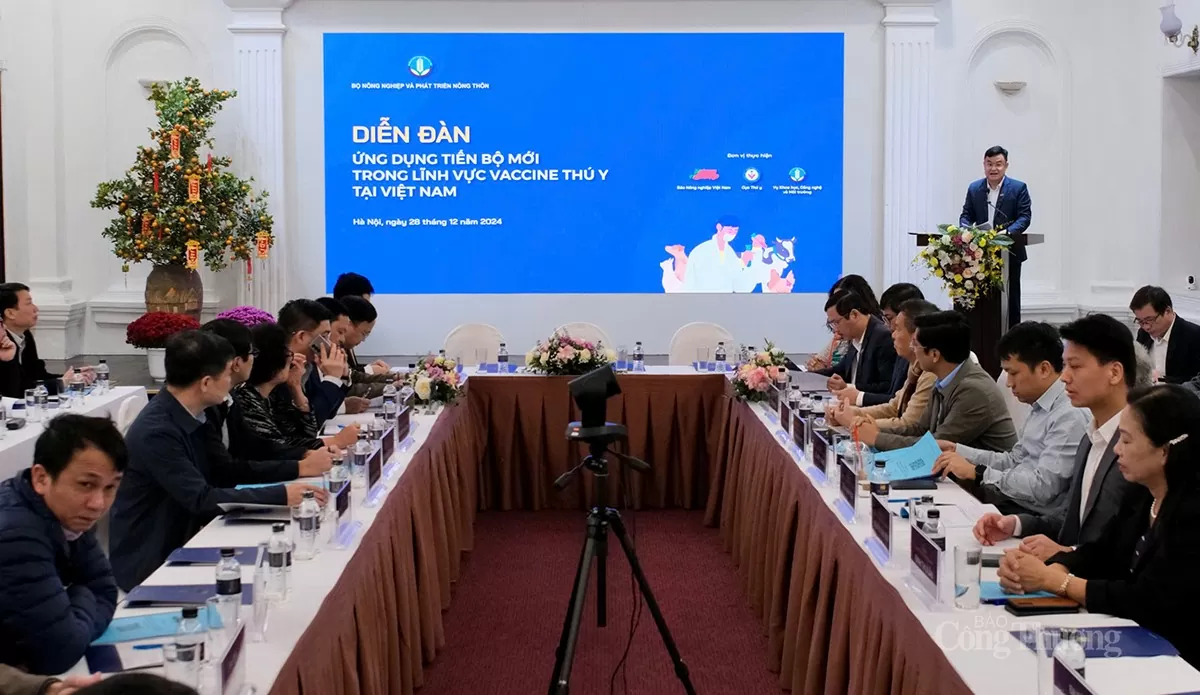 |
| The forum "Application of new advances in the field of veterinary vaccines in Vietnam" took place on the morning of December 27 in Hanoi . (Photo: Tung Dinh) |
Vietnam's veterinary vaccine research and production units are constantly strengthening international cooperation and transferring science and technology with the world's leading countries such as the United States, EU, Japan, Australia, Korea, China, Americas... with the most advanced technologies;...
In the country, the Vietnam Academy of Agriculture and the Institute of Veterinary Medicine are implementing surveillance of pathogenic viruses, analyzing characteristics, sequencing genes of circulating virus strains, sharing results, selecting field strains for evaluating the effectiveness of current vaccines...
Regarding the supply of vaccines and monitoring of veterinary vaccine quality, currently the country has 12 enterprises researching and producing animal vaccines that meet GMP-WHO standards with a total of 218 types of vaccines and 340 types of imported vaccines that have met the needs of disease prevention in livestock and poultry in the country.
Regarding the production and import situation of some important vaccines in 2024, it is as follows: Avian influenza vaccine: 739 million doses (191 million doses produced; 548 million doses imported); foot-and-mouth disease vaccine: more than 46 million doses (1.4 million doses produced; 45 million doses imported); rabies vaccine: more than 5 million doses (1.6 million doses produced; 3.7 million doses imported); blue ear disease vaccine: more than 34 million doses (3.5 million doses produced; 31 million doses imported); lumpy skin disease vaccine: nearly 2 million doses (115,000 doses produced; 1.8 million doses imported).
As for African swine fever vaccine, to date, enterprises have produced and supplied 5.9 million doses to the market. Of which, Navetco Company produced 2.2 million doses (nearly 700,000 doses supplied domestically, 7,000 doses exported); there are more than 300,000 doses left in stock and it is expected to produce about 150,000 doses in the near future. AVAC Company produced over 3.7 million doses (more than 2.9 million doses supplied domestically, over 460,000 doses exported); there are about 33,000 doses left in stock and it is expected to produce 150,000 doses. Regarding the results of the State inspection of imported veterinary vaccines, in 2024, 714 vaccine samples were inspected, 100% of the inspected vaccine samples met the requirements for quality, safety and effectiveness.
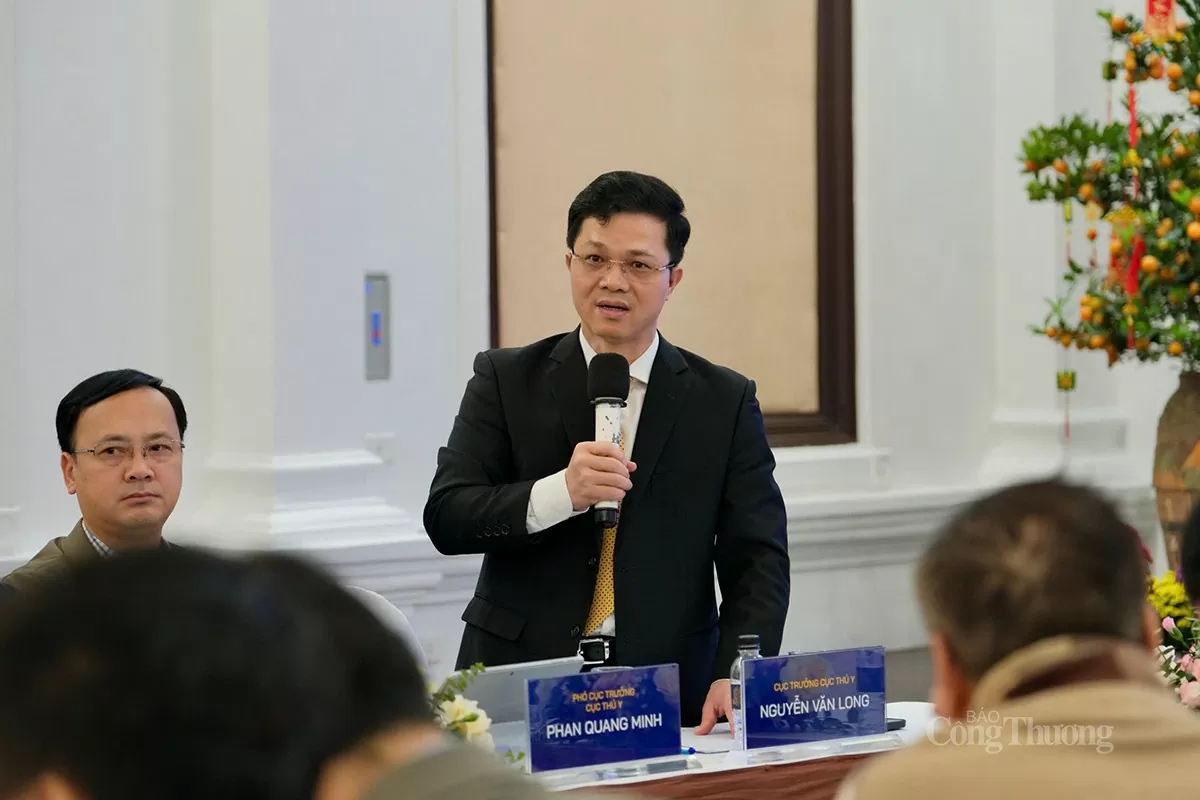 |
| Dr. Nguyen Van Long, Director of the Department of Animal Health (Ministry of Agriculture and Rural Development), speaking at the Forum (Photo: Tung Dinh) |
Emphasizing the need to produce domestic veterinary vaccines to deal with the increasing epidemic situation in animals in Vietnam, Mr. Nguyen Van Long - Director of the Department of Animal Health (Ministry of Agriculture and Rural Development) - informed that epidemics in livestock, poultry and wild animals are increasing, although African swine fever and epidemics in cattle are currently basically under control.
Vietnam has a long border and increasing trade and travel between countries, creating favorable conditions for new diseases, including new strains of avian influenza, African swine fever and lumpy skin disease, to spread rapidly.
“The strong development of vaccine technology in the world creates opportunities for Vietnam to learn and cooperate. We have had significant development in scientific and technological cooperation and Vietnam's vaccine production technology has reached world-class level,” Mr. Long emphasized, recommending that the departments of animal husbandry, veterinary medicine, aquaculture and related enterprises need to cooperate closely in disease control, especially dangerous infectious diseases. The use of vaccines is extremely important and necessary in disease control.
Vietnam has quickly joined the race to produce veterinary vaccines.
In the context of many disease variations as present, disease control in barns and livestock herds must be carried out strictly and protected. Vaccines are an effective measure in minimizing damage, helping output products meet disease safety and food safety standards. Using vaccines not only helps reduce infectious diseases but also ensures safe livestock farming processes.
Over the past years, thanks to the continuous improvement and results of vaccine research over the centuries, both humans and animals have benefited, contributing to protecting public health and ensuring world food security. Along with the livestock industry is the vaccine industry.
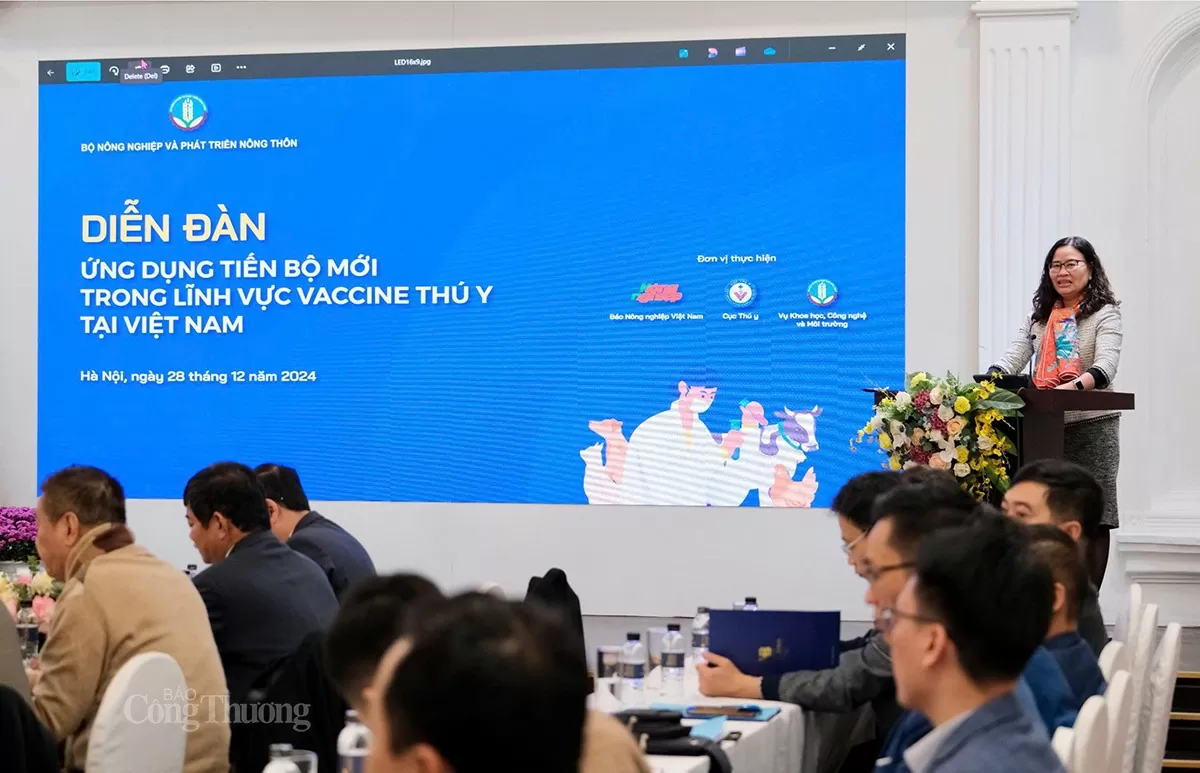 |
| Ms. Nguyen Thi Thanh Thuy - Director of the Department of Science, Technology and Environment (Ministry of Agriculture and Rural Development) spoke at the Forum. (Photo: Tung Dinh) |
According to Ms. Nguyen Thi Thanh Thuy - Director of the Department of Science, Technology and Environment (Ministry of Agriculture and Rural Development), Vietnam has quickly joined the race to manufacture veterinary vaccines; has produced a number of important disease prevention vaccines such as: Avian influenza (Navet-Vifluvac) in 2012; vaccine against blue ear disease since 2015; foot-and-mouth disease vaccine since 2018; rabies vaccine since 2019 and most recently, African swine fever vaccine (NAVET-ASFVAC and AVAC ASF LIVE) in 2022.
In particular, Vietnam has successfully produced and officially exported the African swine fever vaccine AVAC ASF LIVE of AVAC Vietnam Joint Stock Company to 5 countries, marking a great achievement recognized by the world.
“In the coming time, with the achievements and marks that have been recognized by the world, Vietnam has great potential to continue to develop and create new vaccines, meeting the needs of protecting the health of livestock and consumers. With the trend of socializing resources and the strong participation of businesses, the Vietnamese veterinary and livestock industry is ready to apply advanced technologies and develop modern vaccines,” Ms. Thuy shared.
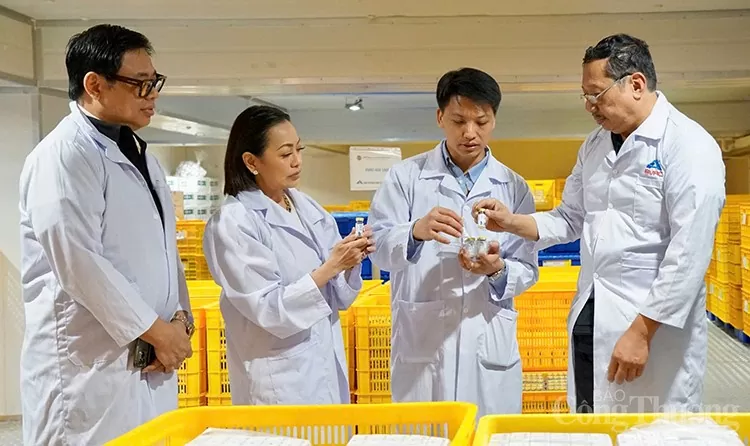 |
| Checking the quality of African swine fever vaccine. (Photo: NH) |
At the Forum, experts and businesses shared new experiences and scientific research, contributing to improving the capacity to respond to epidemics more safely and effectively. From there, aiming to optimize vaccine costs, help farmers save production costs, and at the same time improve livestock quality.
Mr. Nguyen Van Long said that regarding international cooperation, Vietnam is always ready to cooperate, research and develop, and transfer technology to produce new generation, safe, and effective veterinary vaccines. In addition, priority is given to importing veterinary vaccine products to serve the prevention and control of urgent epidemics and emerging diseases such as lumpy skin disease, MS arthritis, etc. At the same time, importing veterinary vaccines according to the needs of livestock breeders and businesses to prevent and control animal diseases in Vietnam.
In particular, the Ministry of Agriculture and Rural Development and the Department of Animal Health always create maximum conditions as well as encourage Vietnamese veterinary vaccine manufacturing enterprises to export veterinary vaccine products to countries in the region and internationally, thereby contributing to affirming the prestige, brand and responsibility of Vietnam to the world's veterinary industry.
| According to the Department of Animal Health, in 2024, Vietnam imported 340 types of vaccines, worth 90 million USD. Of which, 85 vaccines for livestock were worth nearly 60 million USD; 255 vaccines for poultry were worth nearly 26 million USD. Most of Vietnam's imported vaccine products come from multinational corporations that currently possess the most advanced and safe vaccine production technology in the world today. |
Source: https://congthuong.vn/viet-nam-da-nhanh-chong-gia-nhap-cuoc-dua-che-tao-vaccine-thu-y-366677.html




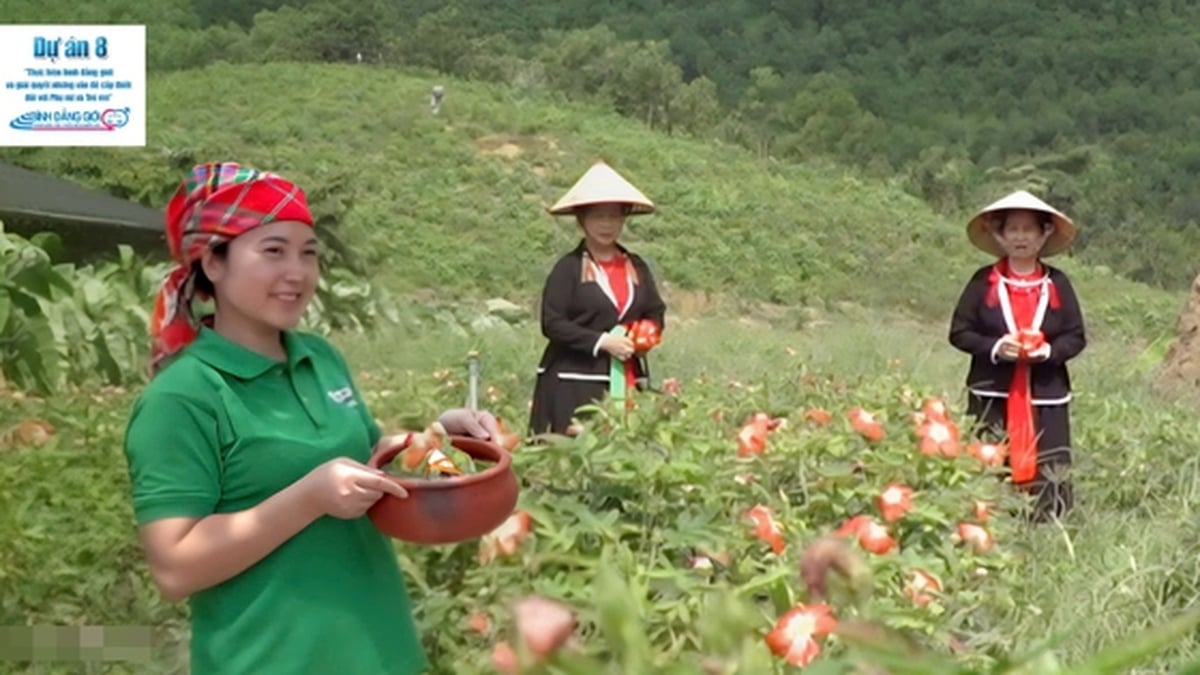
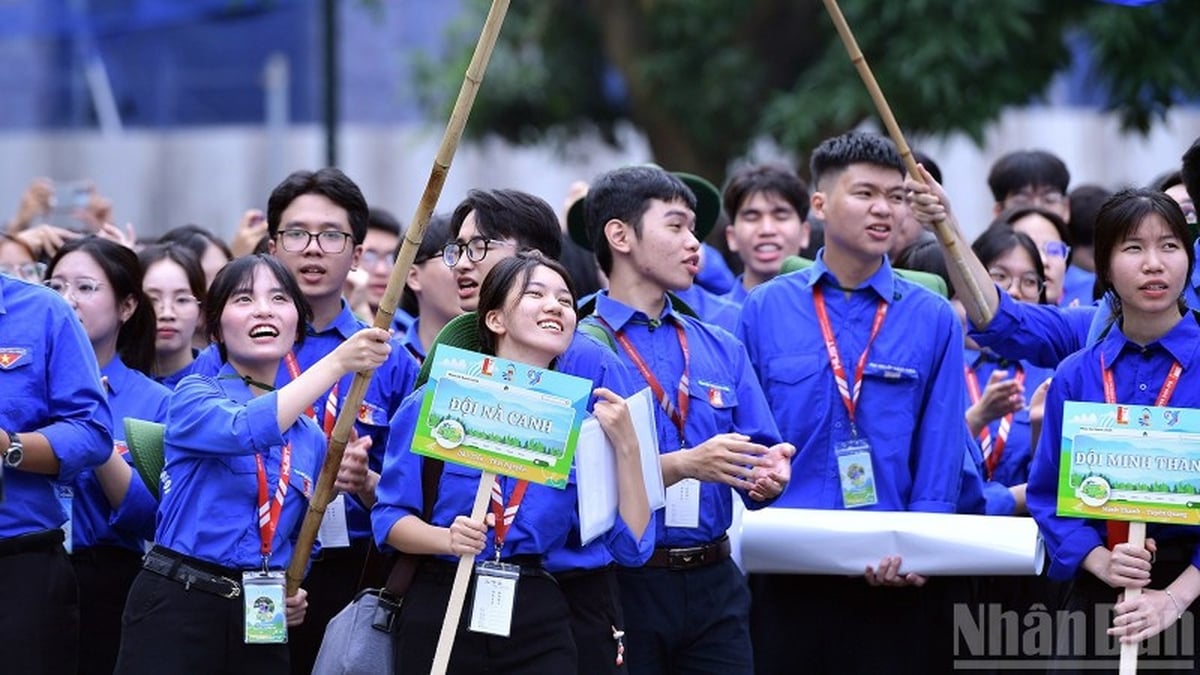

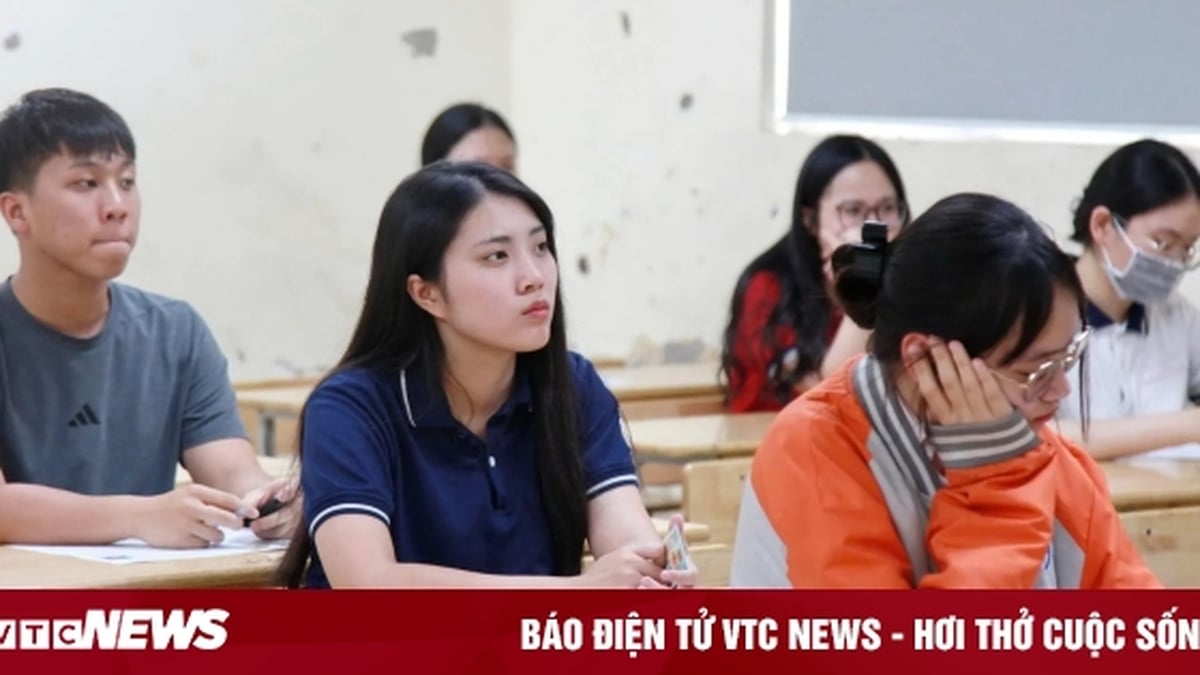
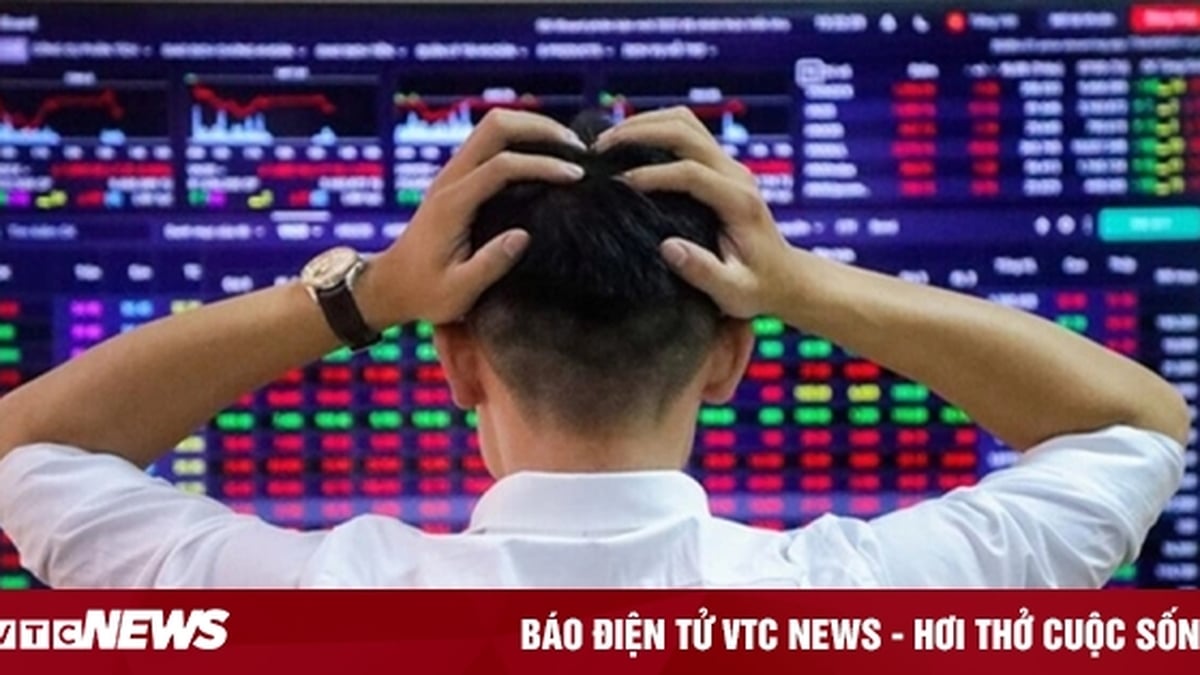


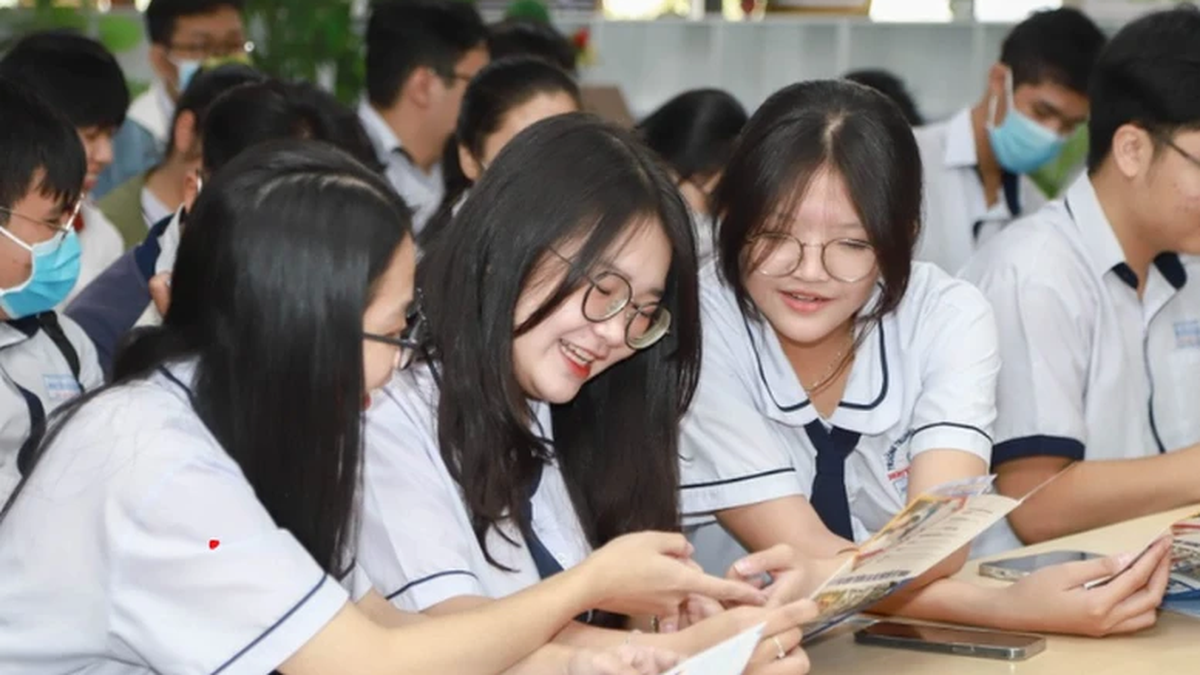














![[Photo] National Assembly Chairman attends the seminar "Building and operating an international financial center and recommendations for Vietnam"](https://vphoto.vietnam.vn/thumb/1200x675/vietnam/resource/IMAGE/2025/7/28/76393436936e457db31ec84433289f72)























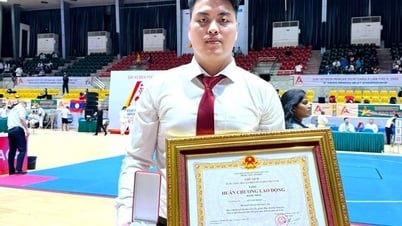











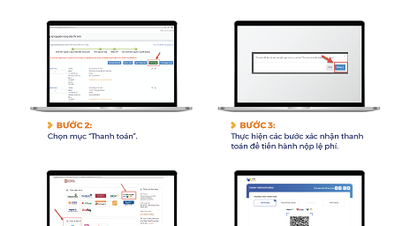








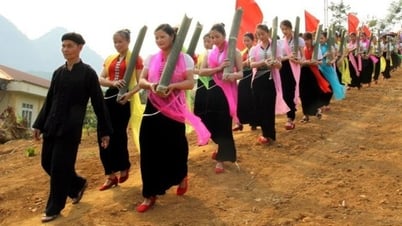


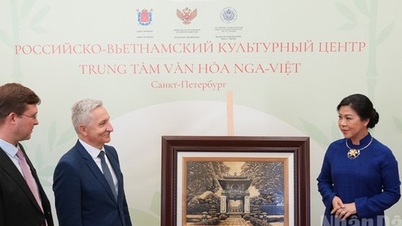

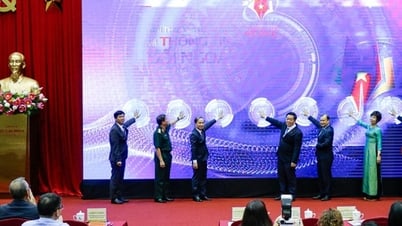
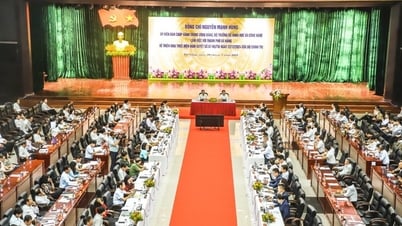




















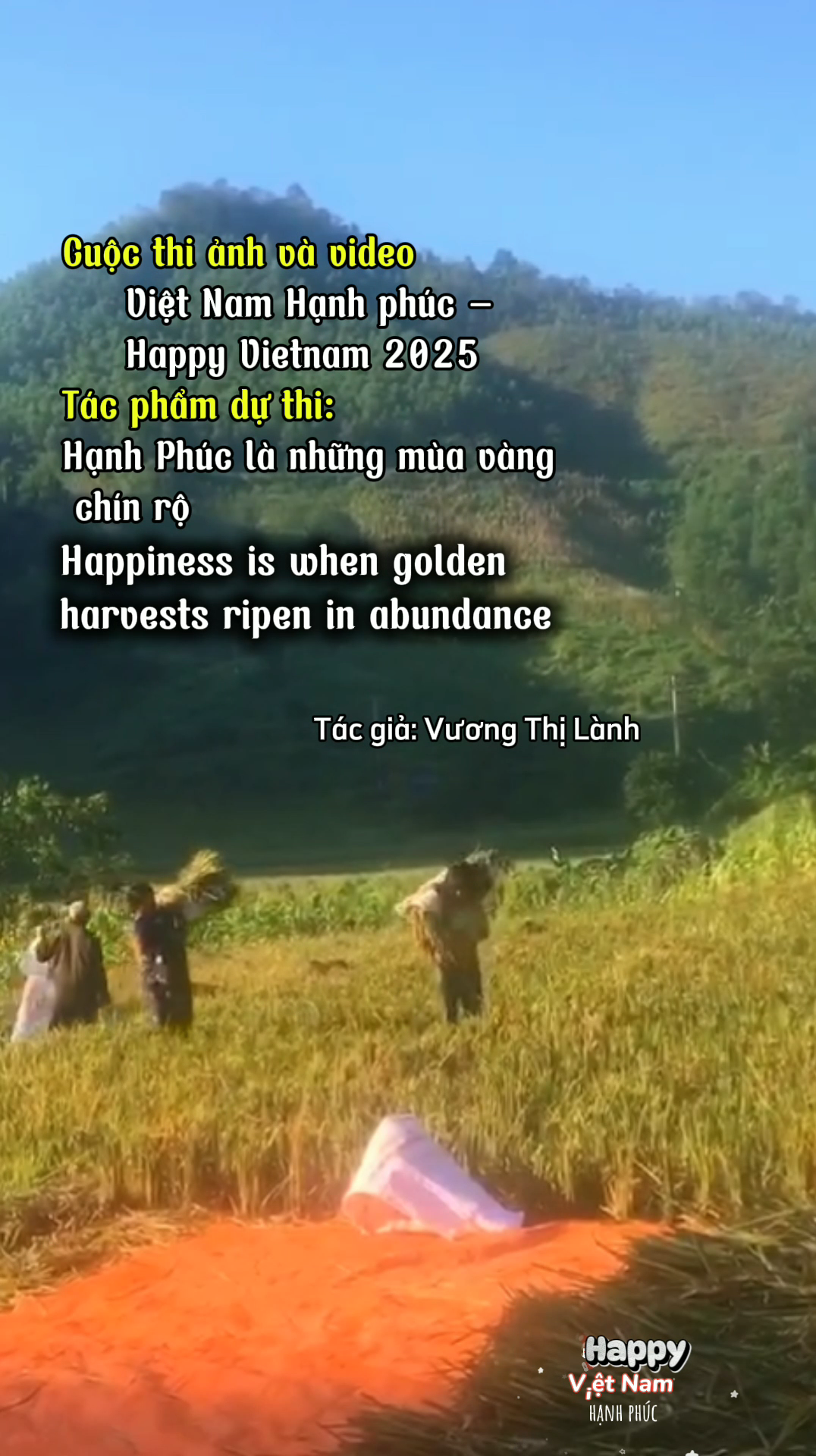


Comment (0)